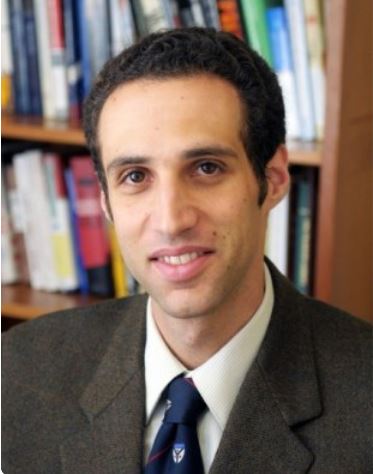
What did you study at Yale, and what is your current profession/job?
I currently work as a researcher at the Center for Strategic and International Studies (CSIS), a large non-partison think-tank in Washington DC that specializes in foreign policy and international security. At CSIS, my title is senior fellow and deputy director of the Russia & Eurasia program, which means most of my work focuses on the former Soviet Union, U.S.-Russian relations, and European security.
I studied History at Yale, graduating with a PhD in History in 2006. My dissertation, which I wrote under the supervision of Professor Paul Kennedy, was titled “Russia and the Polish Question, 1907-1917: Nationality and Diplomacy.” It focuses on how Russia appealed to the Polish minority in Germany and Austria-Hungary before and during the World War I, while seeking to supress the rise of Polish nationalism at home. It also looks at the question of Polish independence in the context of wartime European diplomacy.
What do you like most about your current role? What do you find most challenging and/ or rewarding?
The most rewarding part of my job is working on research and analysis that has the potential to influence U.S. foreign policy, or at least the way policy makers think about the challenges they face. Since I also work on countries with which the U.S. has strained relations, being a non-political expert allows me to be something of a go-between, meeting with colleagues and counterparts in places like Russia and China and trying to come up with ideas for addressing the problems that bedevil our relationships and communicating them to policy makers.
How did your time at Yale shape your career trajectory?
Studying with Prof. Kennedy, as well as Prof. John Gaddis and others from International Security Studies and the Program in Grand Strategy taught me to think about the larger forces shaping the international security environment, and to approach problems strategically. It also gave me the confidence and the network to pursue a non-academic career, but one that was closely linked to the topics and approaches I learned in graduate school. Studying international security from the perspective of the history department also helped me see how the challenges of the present are shaped and affected by their historical context. PhD research also allowed me to spend significant time abroad, improve my foreign language skills, and become part of a wider community that includes academics as well as policy makers, journalists, and others who work in the international security field.
What are the main skills that you acquired as a PhD student which help make you successful in your current career?
To me, the most important skills a humanities or social science PhD student learns have to do with assembling and analyzing large amounts of information and boiling it down to its essentials. Graduate school also taught me how to read closely, write clearly, and present effectively. Maybe most importantly, it taught me to deal with and respond to criticism of my work.
Did you acquire any professional experience related to your line of work while in graduate school?
While I was in graduate school, I worked as an editor for the Yale Journal of International Affairs, which allowed me to work on contemporary international security issues even as I was completing my PhD in history. For my summer project in the Studies in Grand Strategy course, I worked at a Russian think-tank, where I completed a paper on Russian grand strategy that became the basis for my first book. I also wrote occasional op-eds and articles for non-academic publications just to stay engaged and to get my name out in the field where I wanted to work.
What advice would you offer humanities PhDs who are interested in your line of work?
I think the main piece of advice I would offer is to take advantage of the time and security that being a grad student provides to do things that are going to help you get where you want to go. While finishing your dissertation is important, don’t let that be the only thing you do during your time at Yale. Write for non-specialist publications, spend time in the field, volunteer, do an internship. Most of you are (relatively) young, you have good health insurance and (presumably) no mortgage. Make the most of the opportunity. Whether you tell your advisor or not is up to you—I was very fortunate in having an advisor who accepted and supported my decision to expand my horizons, but that may not be true for everybody.
